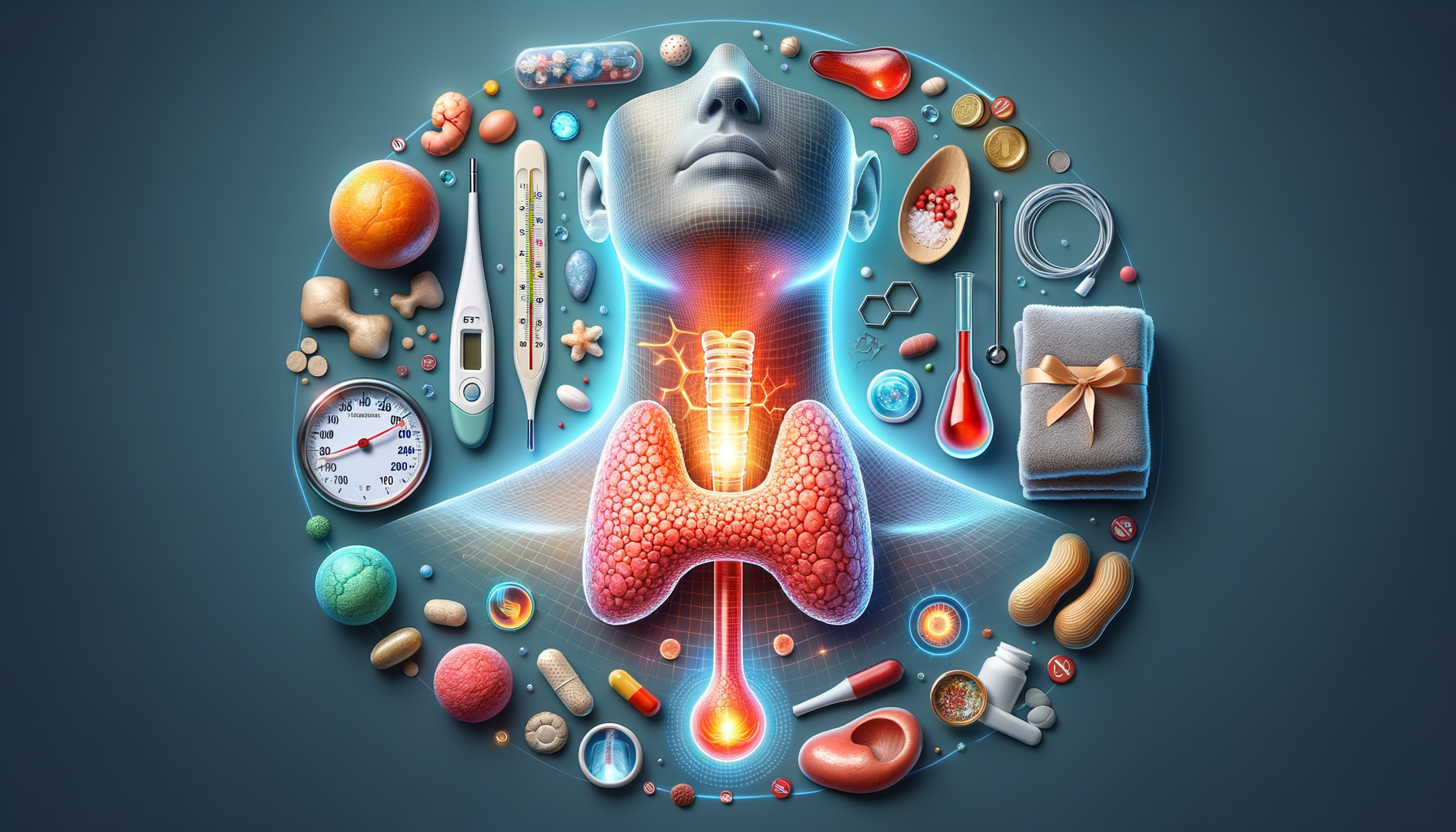Understanding the Thyroid Gland’s Role
The thyroid gland, a small butterfly-shaped organ located in the neck, plays a pivotal role in regulating the body’s metabolism. It produces hormones that control the speed of various bodily functions, including how fast you burn calories and how quickly your heart beats. When the thyroid is underactive, a condition known as hypothyroidism, it does not produce enough hormones, leading to a slowdown in these processes.
Hypothyroidism can be caused by several factors, including autoimmune diseases, certain medications, and iodine deficiency. Understanding the thyroid’s function is crucial because its hormones affect numerous systems in the body. An underactive thyroid can lead to a variety of symptoms, often making diagnosis challenging.
For instance, the lack of thyroid hormones can cause fatigue, weight gain, and depression. These symptoms can be easily mistaken for other conditions, which is why recognizing the specific signs of an underactive thyroid is important for timely diagnosis and treatment.
Common Symptoms of an Underactive Thyroid
Identifying the symptoms of hypothyroidism is essential for managing the condition effectively. The symptoms can vary widely from person to person, but some common indicators include:
- Fatigue and sluggishness
- Weight gain despite no change in diet or exercise
- Depression and mood swings
- Dry skin and brittle nails
- Hair loss
- Cold intolerance
- Muscle weakness
These symptoms can develop slowly over time, making them easy to overlook or attribute to other factors such as aging or stress. It’s important to pay attention to persistent symptoms and consult a healthcare professional if you suspect an underactive thyroid.
Diagnosing Hypothyroidism
Diagnosing an underactive thyroid typically involves a combination of symptom evaluation and blood tests. The most common test measures the level of Thyroid Stimulating Hormone (TSH) in the blood. A high TSH level often indicates that the thyroid is not producing enough hormones.
In addition to TSH, doctors may also check levels of thyroxine (T4) and triiodothyronine (T3), the hormones produced by the thyroid gland. An imbalance in these hormone levels can confirm a diagnosis of hypothyroidism.
Early diagnosis is crucial for managing symptoms and preventing complications. If left untreated, hypothyroidism can lead to more severe health issues, such as heart problems and infertility. Regular check-ups and monitoring are important, especially for individuals with a family history of thyroid issues.
Treatment and Management
Treating hypothyroidism usually involves hormone replacement therapy to restore normal hormone levels. The most common medication is synthetic thyroxine, which is identical to the hormone produced by the thyroid gland.
Managing an underactive thyroid also includes lifestyle adjustments. A balanced diet rich in iodine, selenium, and zinc can support thyroid health. Regular exercise can help combat fatigue and weight gain, while stress management techniques like yoga and meditation can improve overall well-being.
It’s important to work closely with a healthcare provider to monitor thyroid hormone levels and adjust medication as needed. With proper treatment, individuals with hypothyroidism can lead healthy, active lives.
Living with an Underactive Thyroid
Living with hypothyroidism requires ongoing management and self-care. Understanding the condition and its impact on daily life is key to maintaining health and well-being.
Support from family, friends, and healthcare professionals can make a significant difference. Joining support groups or online communities can provide additional resources and a sense of connection with others facing similar challenges.
By staying informed and proactive about their health, individuals with an underactive thyroid can effectively manage symptoms and enjoy a fulfilling life. Regular medical check-ups and a healthy lifestyle are essential components of managing hypothyroidism successfully.




Leave a Reply